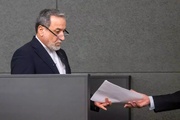In an interview with Al-Arabiya on Tuesday evening, the Saudi Crown Prince said that Iran is a neighbor of Saudi Arabia and hopes that his country can have good relations with it.
Many believe that the Saudi Crown Prince's remarks about Iran and Yemen show significant changes in Saudi Arabia's hostile policies over the years.
As long as Trump was in office, Bin Salman thought he could impose his demands on Iran. But with Trump's departure from the White House and the arrival of Biden and his approach to issues such as the JCPOA and Yemen, it is natural that the situation has changed and Riyadh can not rely on the one-sided policies of the US President.
To know more about these issues, we reached out to Professor Hossein Askari, Economist, Emeritus Professor of Business and International Affairs at George Washington University. Following is the text of the interview with him:
You were intimately involved in improving Iran-Saudi Arabian relations, could you briefly tell us what went wrong?
Saudis did not trust Iran and were convinced wrongly that Iran wanted to overthrow them and as long as they had American support, it was best to have an adversarial relationship with IranIn about 1990, when the two countries had no diplomatic relations, I was asked by the two governments to help restore relations. I believe at that time I was the only person that both sides trusted as I had roots in both countries and no personal agenda such as political ambitions or money. In Saudi Arabia, my contact was the Saudi foreign minister Saud al-Faisal and in Iran the late minister of finance Dr. Mohsen Nourbakhsh. Dr. Nourbakhsh raised a number of issues for confidence-building which I elaborated to the Saudi side. The Saudis kept saying that Iran must not be a prisoner of its past and suggested cooperation on oil policy. We hoped that this would be a first mini step but at the first OPEC meeting that ensued, Saudi Arabia did not do its part. Saud a-Faisal later apologized and basically said that his uncle the king had overruled him. It became clear to me that the Saudis did not trust Iran and were convinced wrongly that Iran wanted to overthrow them and as long as they had American support, it was best to have an adversarial relationship with Iran. To improve relations required my full-time devotion to this effort. I had a job as a professor and a family to support. So I walked away from this. I think that today there is even less trust between the two countries.
Bin Salman has recently retreated from his previous stance on Iran in a clear turn and welcomed interaction with Iran. What is the reason for the change in the Saudi prince's position?
With Trump gone, al-Saud’s only weapon, money and bribery, is less effective. So Bin Salman feels vulnerable and he needs to reach out to Iran I think it is quite simple. While Trump was president, Mohammed bin Salman felt he had full American support to do as he wanted, very much as Israel does and has thus has behaved. His adventure in Yemen that is to my mind tantamount to crimes against humanity, his brutal murder of Jamal Khashoggi and his crackdown on domestic dissent, to name but a few of his transgressions. So he felt safe, American support that the al-Sauds have always banked on. Although I must say that he has gone beyond any Saudi ruler since the origin of the country in 1932. I think that Trump’s support for him was largely based on past business dealings and more importantly on promised future business dealings. So in some ways, he felt he was the master of Trump! But with Trump gone, al-Saud’s only weapon, money and bribery, is less effective. So he feels vulnerable and he needs to reach out to Iran and even more secretly seek Israeli backing.
If the shift in Saudi positions towards Iran is serious, it would also affect the relations of other Arab countries in the Persian Gulf and improve their relations with Iran. In that case, wouldn't it be a blow to Israeli policy in the region?
Yes and no. Israeli officials that I have known have said very bluntly to me that they have no fear of their Arab neighbors. They fear Iran because of what Iranians have done, their history, and what Iranians could do. So their cozying up to the Persian Gulf Arabs has been to get more pressure points and more intelligence on Iran. As long as they have reasonable relations with Persian Gulf Arabs, they don’t much care what relations these countries have with Iran. And I can assure you that no matter what, Persian Gulf Arabs will maintain their relations with Israel as an insurance policy.
How do you evaluate the recent visits of the Iranian Foreign Minister to the Arab countries of the region in order to strengthen diplomacy and resolve disputes?
I think that such visits are in reality more for show and a photo-up than substance. Improving relations between Iran and Saudi Arabia takes much time. It is a full-time job. Does a one-hour meeting achieve that? I don’t think so.
Biden called for an end to the war in Yemen. But after a few months, we are still witnessing the continuation of Saudi attacks on the Yemeni people. What is the reason for Biden's inaction towards Saudi Arabia?
The business of America is business and Biden cannot alienate Saudi supporters. Moreover, Israeli lobbyists back Persian Gulf Arabs as they assume that this will, in turn, hurt IranBiden has many problem issues on his plate. He is juggling to see what he should do first, second and so on down the line. He cannot afford to alienate anyone in the US House and especially in the Senate. He needs their support to pass his domestic agenda. In the case of Saudi Arabia the pressures on him not to offend Mohammed bin Salman come from many different sides. There are many American business interest—commercial sales of weapons and a whole host of other exports many affecting regions of the US where he needs congressional support, finance, consulting/lobbying contract of influential Americans and even American universities that receive Saudi money and thousands of Saudi students. The business of America is business and Biden cannot alienate Saudi supporters. Moreover, Israeli lobbyists back Persian Gulf Arabs as they assume that this will in turn hurt Iran. But it does not stop there. In the US, the war in Yemen is played up as a surrogate war between Saudi Arabia and Iran. And over the years, the media has made Iran as enemy number one. So although the American public does not much like Saudi Arabia, Iran is seen in an even worse light. And again, Biden needs to be careful not to lose any congressional support.
Interview by Zahra Mirzafarjouyan



























Your Comment